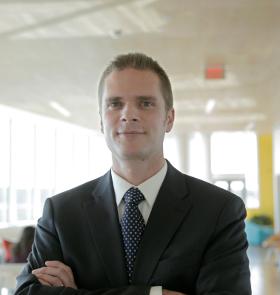This event is from the archives of The Notice Board. The event has already taken place and the information contained in this post may no longer be relevant or accurate.

Fighting disease is one of the longest, toughest battles in the world. But the rewards of scientific breakthroughs are great – often revolutionary – leading to diagnosis, treatment and cure. The Canada Gairdner Awards, our country’s only major international scientific prize, celebrate and reward the scientists who make the discoveries that inspire medical research.
The Alberta RNA Research and Training Institute (ARRTI) is delighted to host Rodolphe Barrangou, recipient of the 2016 Canada Gairdner International Award for his work in establishing and characterizing the CRISPR-Cas bacterial immune defense system. Dr. Barrangou is an Associate Professor in the Department of Food, Bioprocessing and Nutrition Sciences at North Carolina State University, an NC State University Scholar, and the Todd R. Klaenhammer Distinguished Scholar in Probiotics Research; an associate member of the Microbiology graduate program, the Biotechnology graduate program, the Functional Genomics graduate program and the Center for Integrative Medicine; and an adjunct member of the Food Science Department at the Pennsylvania State University.
Dr. Barrangou's CRISPR laboratory focuses on the evolution and functions of CRISPR-Cas systems, and their use for bacterial genotyping, building prokaryotic immunity, and Cas9-mediated genome editing in lactic acid bacteria used in food manufacturing.
Clustered Regularly Interspaced Short Palindromic Repeats (CRISPR), together with associated sequences (cas) constitute the CRISPR-Cas system, which provides adaptive immunity against invasive elements in many bacteria and most archaea. Recently, the CRISPR machinery has been repurposed to drive the Cas9-enabled genome editing craze.The democratization of CRISPR-based technologies in the past three years hinges on the portability and functionalities of these molecular machines, and has revolutionized biology.
Admission is free. All are welcome.
Contact:
Emily Wilton | emily.wilton@uleth.ca | 403-332-4544 | uleth.ca/artsci/biochemistry/alberta-rna-research-and-training-institute-arrti